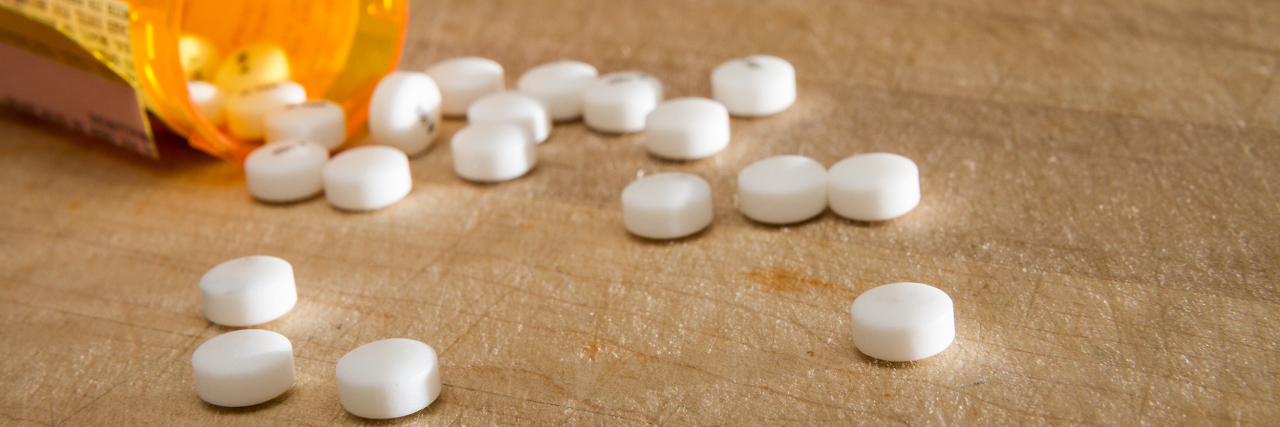None of the nurses or doctors believed me. After I had shoulder surgery we discovered that I’m immune to most pain medications. For me, taking Tylenol is like eating M&Ms. Morphine is about as effective at relieving my pain as sucking on a lollipop. But I was in agony. The nurses and doctors all thought I was an illicit drug user – a drug seeker.
It took over two months for the genetic reason to be established: It turns out that I have a mutation on the gene that encodes the cytochrome P450 enzyme CYP2D6. This enzyme helps humans (and rats) absorb pain medicine and switch the active ingredient on so that the pain sensation is switched off. It is estimated that between about five to 12 percent of the US population have a genetic variation at this locus.
After finding out about the gene mutation, it still took many more weeks to find a drug that doesn’t need to be activated by this enzyme. We were looking for a drug that would be able to dim my pain and break the pain cycle.
Pain is self-reinforcing. Those who struggle with chronic pain learn ways to escape the never-ending spiral. We learn to distract ourselves, we practice relaxation techniques and mindfulness. We are careful not to overexert ourselves.
Acute pain is much harder to control mentally. Ten weeks after surgery, and after having tried countless drugs, my pain doctor begged me to give another kind a try. It turned out to be the only drug besides one other that was able to turn my pain off. I was able to function more normally, and was able to attend physical therapy and rehab. Eventually, I was able to care for myself again, to take part in family life. I tapered off and then stopped taking the mediation. However, I found that I was then on a new quest, namely to avoid pain like the plague.
One day, I made the mistake of watching the afternoon news. The president announced that they were taking the medication that helps me off the market, fearing the opioid crisis was taking too many lives. I broke down in tears.
The stress caused by the pain is debilitating. I am no longer able to work or exercise, to read books, watch movies, or even enjoy long conversations. I have post-traumatic stress disorder (PTSD). The only painkillers we have in the house are ice packs and movies to relieve rheumatoid arthritis flares or acute pain from joint dislocations, which happen because I also have a connective tissue disorder. We have a binder full of my medical records and test results in case I need to go to the hospital and beg for pain medications, to seek drugs!
Given that the medication that helps me is no longer available in the United States, there is no drug I can take at home to relieve my pain. My family always dreads those times when I am in the hospital for pain treatment.
Since cytochrome P450 polymorphisms are genetic and can be inherited, we had our two kids tested. They both carry the mutation. They also have no reaction to over the counter painkillers because they are poor metabolizers. It turns out that my husband has the mutation too, because our son inherited the gene mutation from both parents. Now that the medication that helps me has been banned, there are no effective painkillers that I, my husband and our kids, that is our whole family, can take orally. I was so shaken by the news that this medication, a drug that was discovered in 1916 in Germany and had been used for many years, is no longer available. Have they really taken the only oral painkiller that can help me off the market? What about the other 12 percent of the US population who are poor metabolizers of pain medications?
We celebrate each pain-free day. We are grateful for every day when our pain is bearable. We are happy when we are able to endure our pain. We’ve accumulated a whole arsenal of pain-fighting weapons in our home: ice packs, hot packs, a TENS unit, numbing creams, a paraffin bath, oxygen, braces, compression ware. You name it, we stockpile it. We live in agony and fear of the day when the pain might get too severe and our only option is to join the long line in the ER, where we’re treated like “drug seekers.” And that’s what we are. We seek drugs to relieve our pain. And what, exactly, is wrong with that?
We want to hear your story. Become a Mighty contributor here.
Gettyimage by: txking

